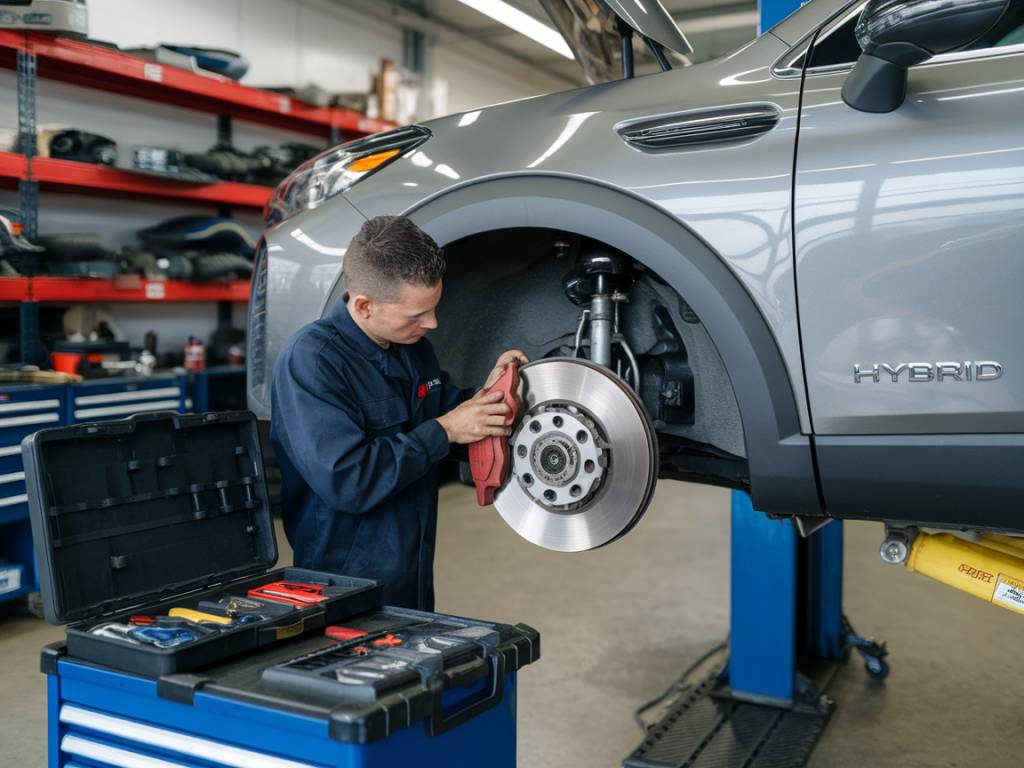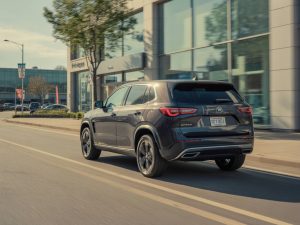how to keep your hybrid vehicle running smoothly: maintenance tips

how to keep your hybrid vehicle running smoothly: maintenance tips
Owning a hybrid vehicle combines the best of both worlds: the efficiency of electric power with the convenience of a traditional internal combustion engine. The unique powertrain of a hybrid vehicle, which includes both a gasoline engine and an electric motor, presents unique maintenance challenges and opportunities. Properly maintaining your hybrid vehicle can ensure it runs smoothly for years to come, allowing you to maximize the benefits of your forward-thinking investment. Here are several essential maintenance tips to keep your hybrid vehicle in top shape.
Regular Engine Maintenance
The internal combustion engine in your hybrid vehicle still requires routine maintenance, similar to that of a traditional gasoline-powered car. This includes oil changes, replacing air and fuel filters, and timely spark plug replacements. Neglecting these essential tasks can lead to engine wear and reduced fuel efficiency.
Oil Changes: Despite their electric counterpart, hybrid vehicles still need regular oil changes. Typically, hybrid engines run less often than conventional engines, but when they do, they’re often under harder working conditions. Refer to your owner’s manual for the specific oil change intervals recommended by the manufacturer.
Filters: The air and fuel filters are crucial for maintaining engine performance and efficiency. Regular inspections and replacements ensure that your engine receives clean air and fuel, which can prevent costly damage to the engine’s components.
Spark Plugs: Spark plugs should be inspected and replaced as necessary to ensure optimal engine performance. Though they might wear out less frequently in hybrids due to the intermittent use of the engine, they still need attention based on the manufacturer’s guidelines.
Battery Maintenance
The battery pack is the heart of a hybrid vehicle’s electric drivetrain. While hybrid batteries are generally designed to last for the life of the vehicle, certain maintenance practices can help extend their lifespan and improve efficiency.
Cooling System Maintenance: The battery in your hybrid vehicle generates heat, particularly during charging and discharging cycles. Most hybrids come equipped with a dedicated cooling system for the battery pack. Regularly check and maintain this system, ensuring it remains free of debris and operates efficiently.
Proper Charging Practices: Avoid letting your battery discharge completely whenever possible. Regular, shallow discharges typically result in a longer battery life compared to deep discharges. Similarly, avoid extreme charges and discharges to extend battery health.
Post-Warranty Battery Care: After the initial warranty period, remain vigilant about battery performance. Early detection of issues can often mean the difference between a simple repair and a costly replacement.
Brake System Maintenance
One of the unique features of hybrid vehicles is regenerative braking, which helps recharge the battery while slowing the car down. This system decreases wear on traditional brake components but still necessitates periodic checks and maintenance.
Brake Pads and Rotors: While regenerative braking reduces wear on brake pads and rotors, they still require inspection and maintenance. Sticky or unresponsive brakes might indicate fluid issues or the need for pad replacement.
Brake Fluid: Brake fluid should be checked regularly and replaced as per the manufacturer’s guidelines. Contaminated brake fluid can reduce braking efficiency and cause premature wear of brake system components.
Tire Maintenance
Proper tire maintenance is crucial for all vehicles, but it’s especially important for hybrids that benefit greatly from reduced rolling resistance to maximize fuel efficiency.
Tire Pressure: Regularly check your tire pressure using a reliable gauge. Underinflated tires can drastically decrease your fuel efficiency and affect the overall handling of the car. The ideal tire pressure settings can be found in your vehicle’s owner’s manual.
Tire Rotation and Alignment: Routine tire rotation and alignment checks are essential to ensure even tire wear. An uneven tread can lead to decreased traction and a rougher ride.
Tread Depth: Inspect the tread depth of your tires at regular intervals. Most tires come with tread wear indicators; if these are worn down, it’s time for a replacement. Ensuring your tires are in good condition maximizes both safety and fuel efficiency.
Hybrid-Specific Components
There are several components unique to hybrid vehicles that require attention. Regular maintenance of these hybrid-specific parts ensures the entire system operates seamlessly.
Inverter Coolant: The inverter in a hybrid vehicle converts DC power from the battery to AC power used by the electric motor. This component requires cooling to prevent overheating. Regularly check the inverter coolant levels and replace the coolant as specified by the manufacturer.
Transmission Fluid: Many hybrid vehicles use a specialized transmission system. Ensuring the transmission fluid is at the correct level and is replaced according to the vehicle’s service schedule is crucial for smooth performance.
Hybrid System Software Updates: Hybrid vehicles often require updates to their control software, much like computer systems. Keeping this software up to date ensures that your vehicle operates with the latest efficiency and safety improvements.
Climate Control System Maintenance
The climate control system, particularly the air conditioning system, is often interconnected with the battery cooling system in hybrid vehicles. Ensuring that your car’s HVAC system is in good working order is crucial for both comfort and battery longevity.
Air Conditioning System Checks: Routine checks of the air conditioning system prevent refrigerant leaks and guarantee that the system operates efficiently. An inefficient air conditioner can consume more power, reducing overall fuel efficiency.
Cabin Air Filters: Regular replacement of cabin air filters ensures a clean and healthy interior environment while maintaining optimal air flow for the HVAC system. A clogged filter can strain the system, reducing its effectiveness.
Conclusion
Maintaining a hybrid vehicle involves a combination of traditional car care and attention to hybrid-specific components. Regular inspections and upkeep ensure that both the gasoline and electric sides of your vehicle run smoothly, providing optimal performance, efficiency, and longevity. Always consult your vehicle’s owner’s manual for specific maintenance guidelines and schedules, as these recommendations are tailored to the unique needs of your hybrid model. By following these maintenance tips, you can enjoy the numerous benefits of your hybrid vehicle for many years to come.





